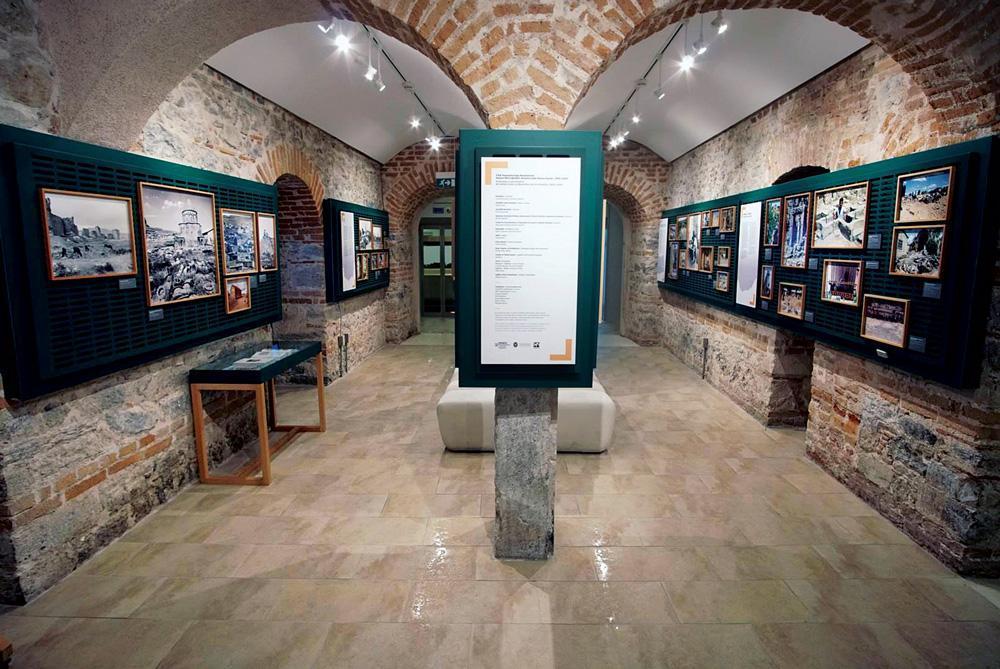
Koç University’s Research Center for Anatolian Civilizations (ANAMED) and the Sapienza University of Rome present the result of their collaborative efforts at a newly opened exhibition, titled “Picturing a Lost Empire: An Italian Lens on Byzantine Art in Anatolia, 1960–2000.”
The exhibition focuses on the research on Byzantine art carried out by Italian scholars in the second half of the 20th century and examines its mutual relationship with the history of Byzantine art historiography in Turkey. Featuring a selection of previously unpublished archival photographs of extraordinary monuments preserved in Anatolia, the exhibition, which opened on June 1, can be visited at ANAMED through Istanbul Dec. 31.
Between 1966 and 2000, Italian art historians traveled across the historical regions of Turkey in order to explore the architecture surviving from the Middle Ages (400-1400 C.E.).
These trips resulted in a substantial number of photographs, later collected in the Center for Documentation of Byzantine Art History of Sapienza (CDSAB). Curated by art historians Livia Bevilacqua and Giovanni Gasbarri, the exhibition offers a look into the holdings of CDSAB for the first time.

“Picturing a Lost Empire: An Italian Lens on Byzantine Art in Anatolia, 1960–2000” draws extensively on the photographs and other archival materials of the CDSAB, focusing specifically on four historical regions: Eastern Turkey, Lycia, Mesopotamia and Tur Abdin, Cilicia and Isauria. These outstanding materials, gathered over the course of almost 50 years, attest to the story of monuments and artifacts that have since been radically transformed or have even vanished in many cases.
The exhibition invites visitors to follow this unique route from Rome to the East, to rediscover the remains of a lost empire, and to step into the scenic landscape that surrounds them.
Also in conjunction with the opening, ANAMED published a bilingual volume under the same title, edited by Bevilacqua and Gasbarri and translated by Yiğit Adam.
The book includes all of the photographs on display and features contributions by the curators and other prominent specialists in Byzantine art and archaeology, such as Alessandra Guiglia, Antonio Iacobini, Engin Akyürek, Claudia Barsanti, Andrea Paribeni, Enrico Zanini and Lorenzo Riccardi.